For office use only
T1
T2
T3
T4
For office use only
F1
F2
F3
F4
Team Control Number
46731
Problem Chosen
A
2016
MCM/ICM
Summary Sheet
(Your team's summary should be included as the first page of your electronic submission.)
Type a summary of your results on this page. Do not include the name of your school, advisor, or team members on
this page.
Summary
Our experience of everyday life tells us that, bathing quality is relevant to the
temperature of the water. Hence the optimality of the water-adding strategy in bathing
process has become an issue.
In this article, we establish two models. One is water temperature variation and
distribution model and the other one is finding best strategy model. We put forward
some acceptable hypothesis to simplify the model. Wha’st
of the word “noticeably”.
more, we clear the meaning
The first part has five sections: air’s heat radiation, bathtub wall’s heat radiation,
person in, hot water in, bubble existed. We discuss some factors that affect water
temperature, such as the shape and the volume of the bathtub and person, especially
the motions made by the person in the bathtub because the temperature in the bathtub
has a great connection with person. Finally, we get the water temperature variation
and distribution model.
The second part aims to finding the best water strategy. Different strategies are
considered for adding hot water and the amount of the hot water. The key of strategies
is how to choose the moment of opening the faucet and the lasting time. By
developing an optimization model of the strategy, we manage to determine a strategy
for different users and extend the model with a finite volume method. Under the
condition of the same bathing time, we study what’s the ideal time to add the hot
water to make it to the initial temperature.
�
Team # 46731
Page 2 of 19
We transform the weight p. With the restrict condition of the temperature in the
bath and the amount of the hot water, the question can be transformed to a nonlinear
optimization. We get the conclusion and optimal results through the PDE (Partial
Differential Equations) toolbox of MATLAB. And the result shows a clear superiority
for choosing a suitable strategy for different users.
Key words: bathtub; heat-conduction; temperature variation and distribution;
water strategy; finite volume method;
�
Team # 46731
Page 3 of 19
Contents
Summary.............................................................................................................1...
Introduction ...................................................................................................4...
I.
Analysis .....................................................................................................4...
II.
III.
Assumptions ..............................................................................................6...
IV. Notation .....................................................................................................7...
V. Models .......................................................................................................8...
Part I Water Temperature Variation and Distribution Model ......................... 8..
Air ’s Heat Radiatio..n......................................................................8..
Bathtub Wall ’s Heat Radia..t.i.o..n.........................................................9.
Person In .........................................................................................9...
HotWaterIn...................................................................................10
Bubble Existed...............................................................................11
Water Temperature Variation and Distribution Mode.l......................11
Part II Finding the best strategy.................................................................12
VI. Results ....................................................................................................1..2..
Part I..........................................................................................................12.
Results of Air ’s Heat Radiation M...o..d..e..l.....................................1. 2
’s Heat R..a..d.i.a..t.i.o..n............................. 1. 3
Results of Bathtub Wall
Results of “Perso.n...I.n.....”..........................................................13
Results of “Hot Wate.r..I.n......”....................................................13
Results of bubble existed model ...................................................15.
Results of Water Temperature Variation and Distribution Mode.l... 15
Part II ........................................................................................................16.
VII.
Strengths and Weaknesses..................................................................1..7...
VIII.
Explanation for users ...........................................................................18.
IX. References...................................................................................................19.
�
Team # 46731
Page 4 of 19
I.
Introduction
A hot water bath can relax people's body and it is one of the most popular ways
to relax ever since. However, people are often troubled by the water becauseit is
getting colder and colder. In this case, it is crucial to study the water temperature
changes with space and time, and to provide people with the best bath strategy.
The interaction and system in the bat is rather complex, include the heat transfer,
convection and radiation. The heat transfer satisfies Fourier Diffusion and heat, spread
fasted under the direction of gradient. Convection is the interaction of the water in the
bath where high energy spreads to lower one.
In order to study how the different strategies affect the water temperature, we
need first establish an equation to reflect this kind of transformation and heat transfer
equation is exactly the one. But the difficult is that the equation is under the ideal
situation which has a significant difference to the ordinary condition.
By combining the shape/volume/temperature of the person in the bathtub, we get
a comprehensive view over the pan designs. We can provide different strategy
according to the motions made by the customers.
II. Analysis
With the purpose of raising water temperature as close as possible to the initial
temperature, and wasting less water as far as it could be, so the key point will be the
power of losing heat on which controlling the heating time and the flow of hot water
depends . However, there are many factors impact the power.
Factors of the bathtub
Shape
If the total amount of water needed to bath is changeless, we can assume that the
volume of bathtub is constant, too. Energy lost by evaporation of water positively
correlated with the water-gas contact area. So it will be better if
surface of tub smaller, satisfying the basic human needs of the bath.
the intersecting
Volume
The amount of water that can set is directly determined by the volume of bathtub.
Define a system about the water in the bathtub. With the greater the amount of water,
the system is more stable, in the case of equal energy interference. Therefore, it
is
more reasonable to choose a bigger bathtub in the condition of same intersecting
�
Team # 46731
surface.
Factors of Human
Page 5 of 19
Person in bathtub is serious mess to original bathtub system. With the influence
of human shape, temperature, behavior, the power of losing heat could be volatile.
Thereby the water strategy should fit these.
It
Feeling
is a very vague concept to human about the feeling of hot and cold,
considering the difference of person. There are two comprehensions about the word
“noticeably: ”
(1) the rate of
temperature changing reaches a certain value, the man feels
"cooler";
(2) the changes of water temperature reachesa certain value than the man feels
"cooler".
We consider the second condition.
Temperature
Various parts of person in the water get different temperature, but the human
circulation and other physiological system will
to keep integral
temperature balance. It is reasonable to assume that human body maintains a certain
temperature.
transfer heat
Shape
Different shapes in the bathtub directly impact on contact area. People will
absorb heat in the system, by the area of contact between man and water, thereby
affecting additional cooling power of the system.
Behavior
It is absurd to consider person as a stationary object. Person will inevitably make
a variety of actions, which will stimulate waves on the water surface, increasing the
surface area of evaporation and changing power. Based on the research of wave, a
coefficient is invented to represent the relation between water surface and the active
extent of human.
�
Team # 46731
Page 6 of 19
Figure 1 models flowchart
III. Assumptions
The air temperature remains constant.
The air above the water will be heated, but as the air temperature rises, the
density becomes smaller and the air will rise. In the meanwhile, the fresh air adds to
the bottom space. So we assume the air temperature remains constant.
Evaporation doesn’t lose water quality.
Evaporation would reduce the quality of water, but compare to the whole bathtub,
this part is so small that it may be entirely neglected.
The bathtub has the double layer and vacuum wall.
The wall of bathtub will
take heat when contacting with water. Most of the
bathtubs have the double layer and vacuum wall. So we just consider the layer which
contact with water.
The bubble covers the water smoothly.
�
Team # 46731
Page 7 of 19
IV. Notation
Symbol
Meaning
Water temperature
Initial water temperature
The temperature range of water and bathtub
The temperature range of water and human
The height of wave
Water-bathtub contact area
Water-person contact area
Water-air contact area(no person)
Water-air contact area(person in)
Heat transfer coefficient
Evaporation coefficient(no bubble)
Evaporation coefficient(bubble in)
Water specific heat capacity
Water density
Water volume
Heat source intensity
Time
Add hot water moment
The flow of hot water
??
The dry-bulb temperature of the air
The extent of human activity
�
Team # 46731
Page 8 of 19
V. Models
Part I Water Temperature Variation and Distribution Model
We see the water in the bathtub as a whole system. The average temperature of
the system is affected by following factors.
Air ’ s heat radiation
Bathtub ′swall
Human body
Motions
Human cross section
Add in hot water
Bubble effects
Increase {
Decrease{
{
Other dissipative
We don’ctonsider other dissipative.
Air ’s Heat Radiation
Figure 2 bathtub system
As to the heat radiation between the water and the air, we can see it as the hot
water cool naturally without person in the tub. The three ways to radiation from the
water are heat loss through convection, loss through evaporation and loss from
cooling. According to the total heat radiation of the unit time [1],we have
????= ??????+ ??????+ ??????= [??(
- ??) + ??(?"?- ????) + ????(+ 273) 4]????
??
Where ??????is the heat loss through convection of the unit time,??????is the heat
loss through evaporation of the unit time,??????is the heat loss through convection from
cooling of the unit time; ?? is the coefficient of heat transfer, unit ??/(?? ?℃);T is
the air, unit℃ ; dF is
water temperature, unit ℃;??is the dry-bulb temperature of
water-air contact area, unitm2; ??is the evaporation coefficient, unit ??/(?? ??????;)
??"
??
pressure of
5.6×10 -8 ??/(?? ???4).
the wet air, unit hPa; ??is the optical density which is 0.97. ??is
the surface of the water, unit hPa; ?? is the vapour
is the vapour pressure of
??
As a result, we know the heat dissipating power Q1 of the areaSis
??
??(S) = ∫ [??(
- ??) + ??(?"?- ??) + ??(?? + 273) 4]????= ???
??
??
Where ??represents[??(
- ??) + ??(?"?- ??) + ??(?? + 273) 4] 。
??
??
�
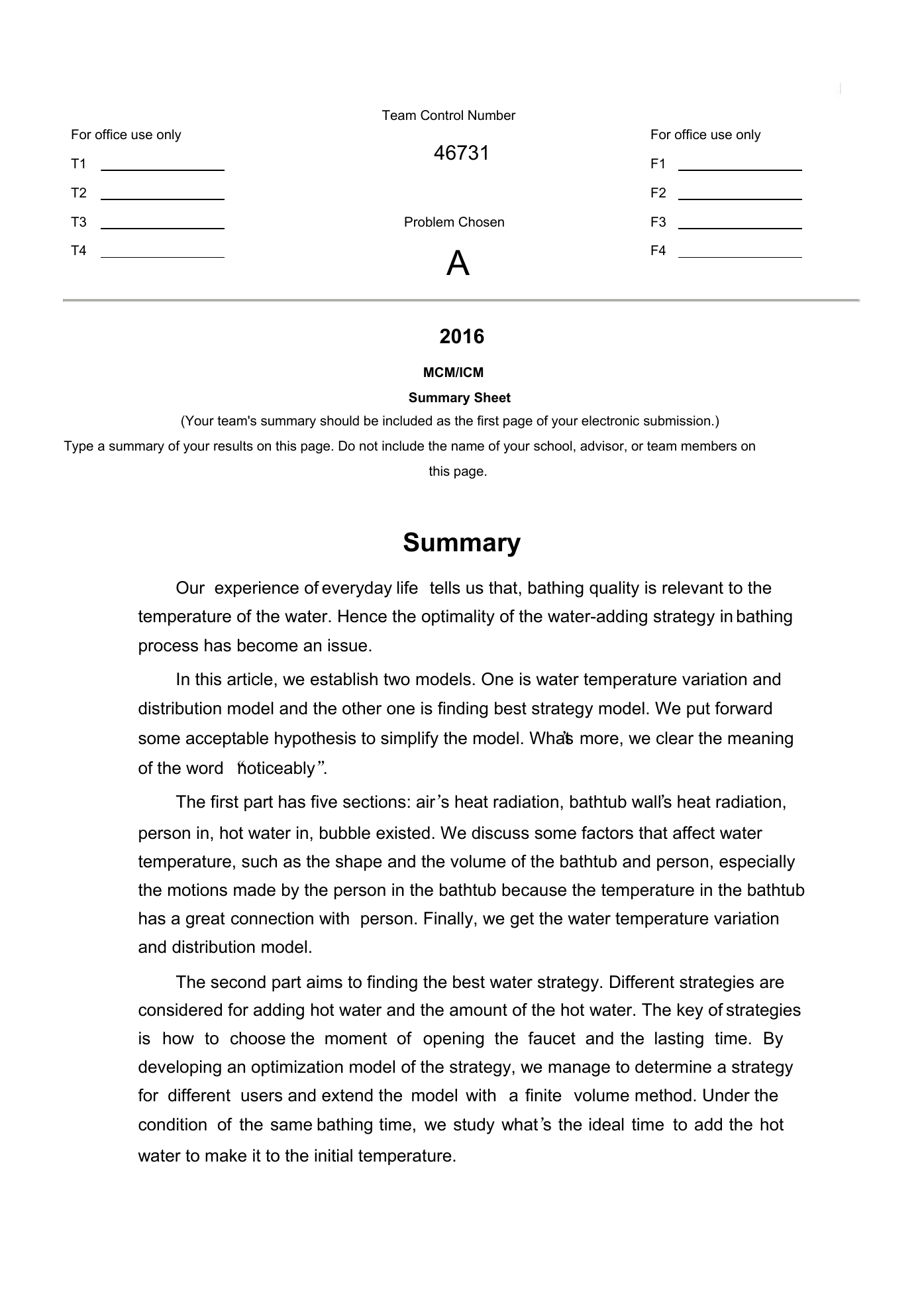
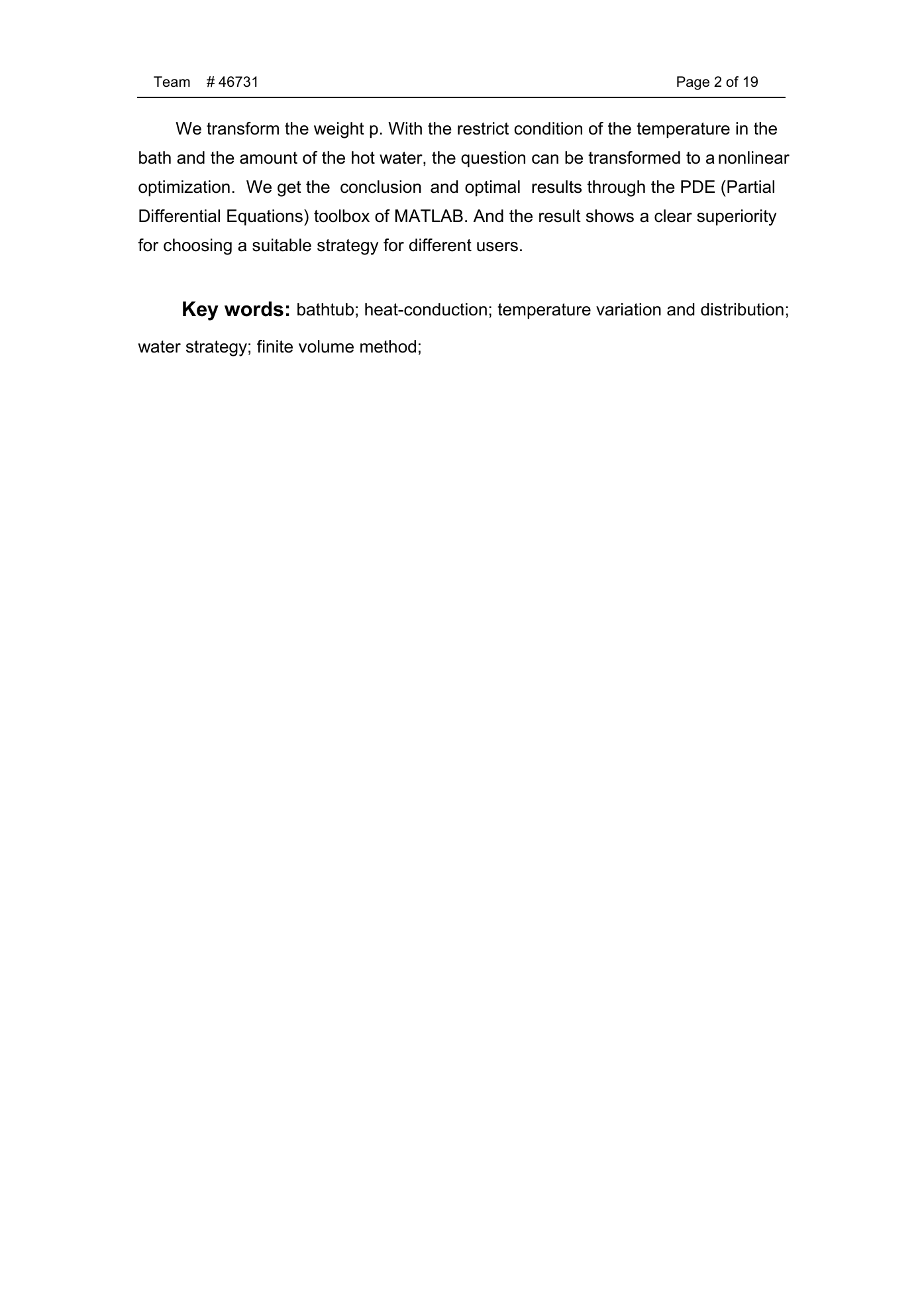
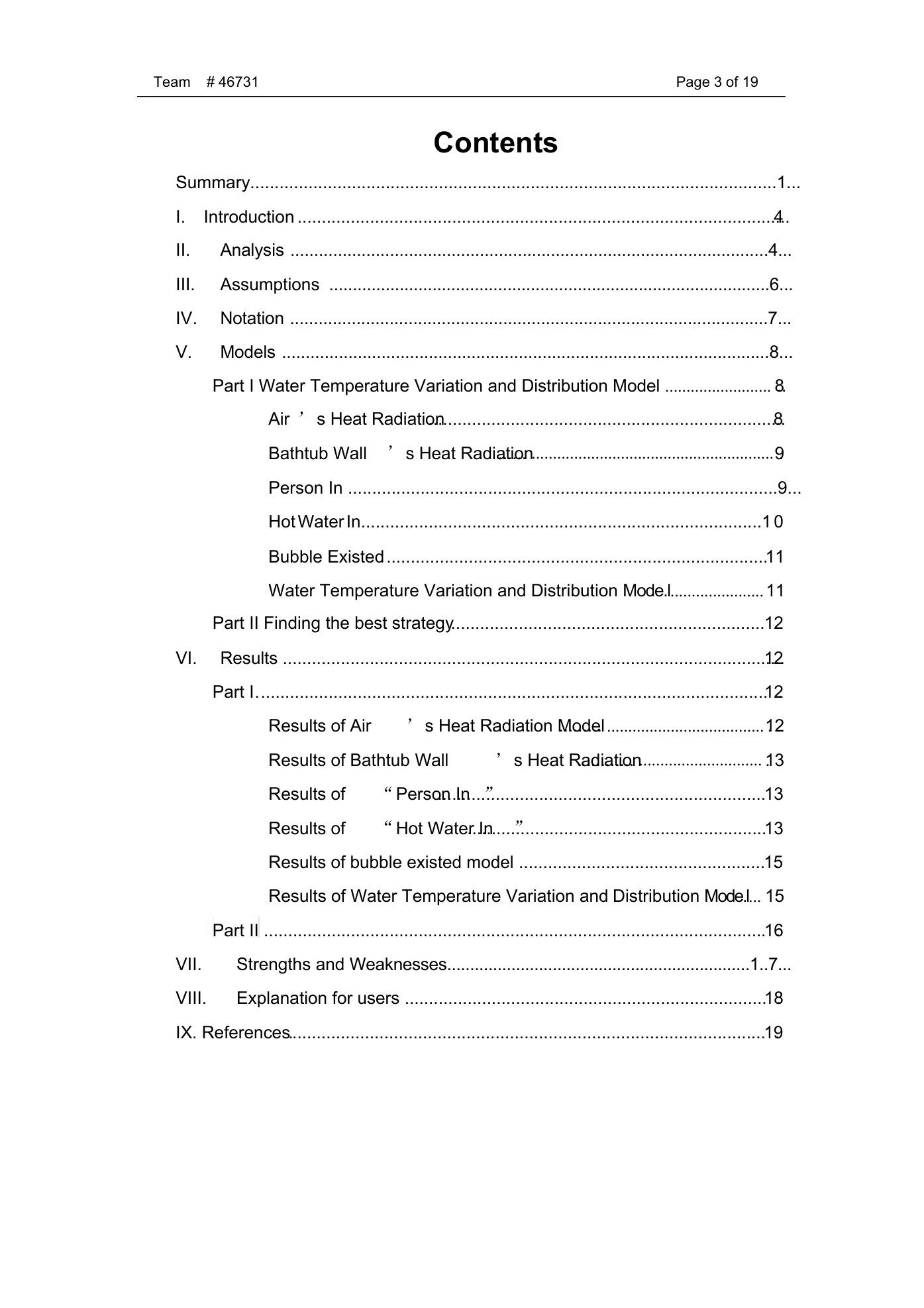
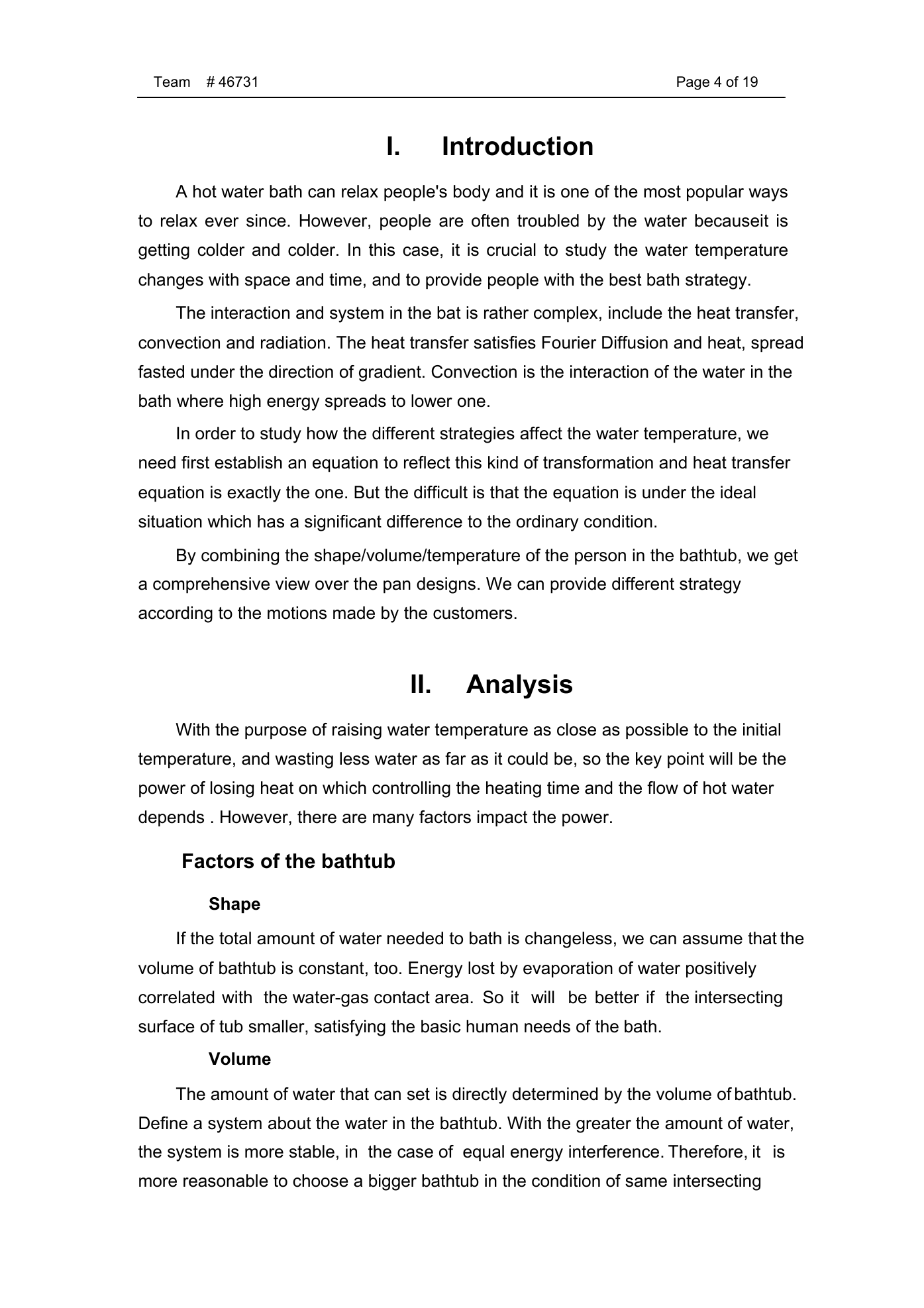
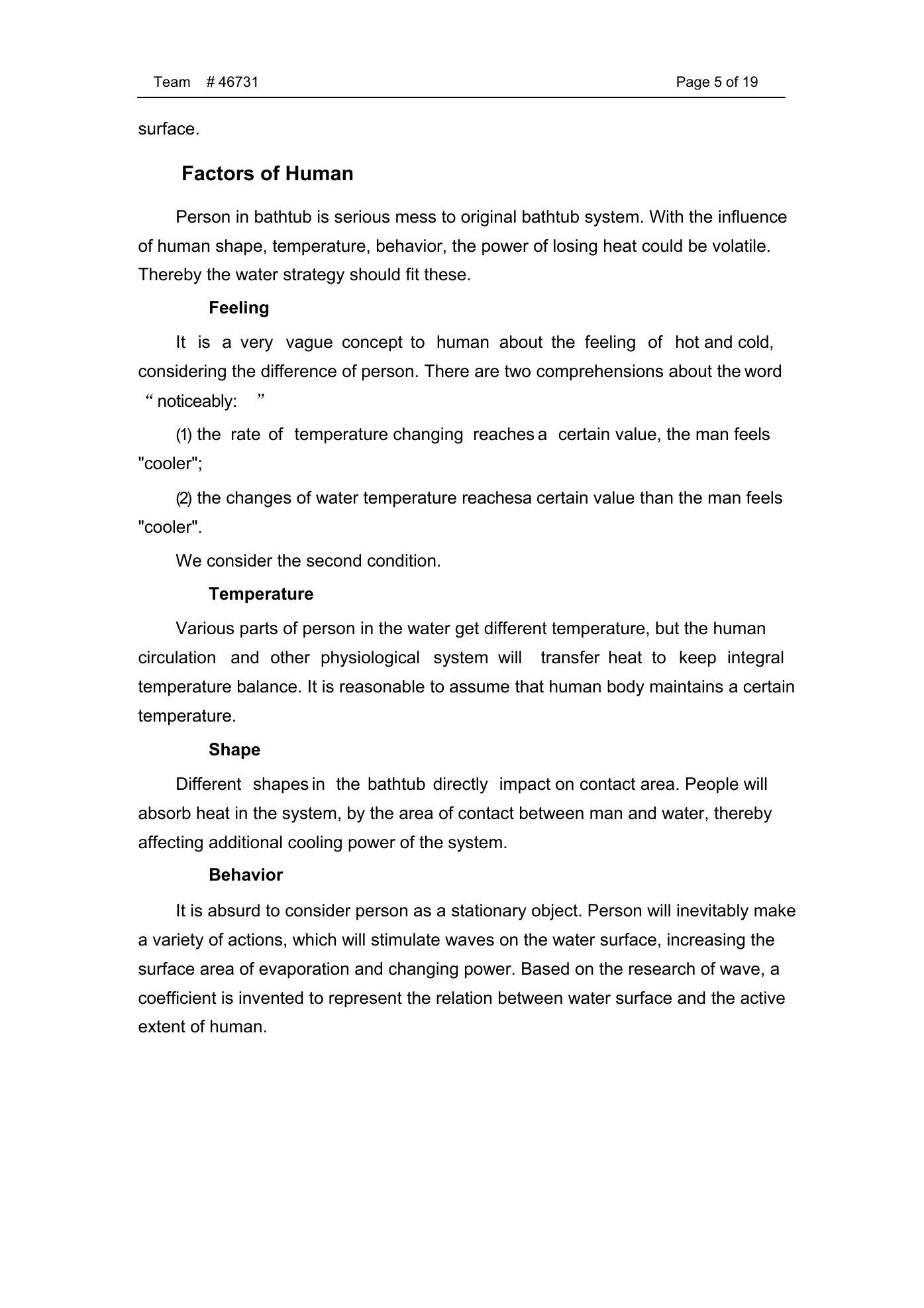
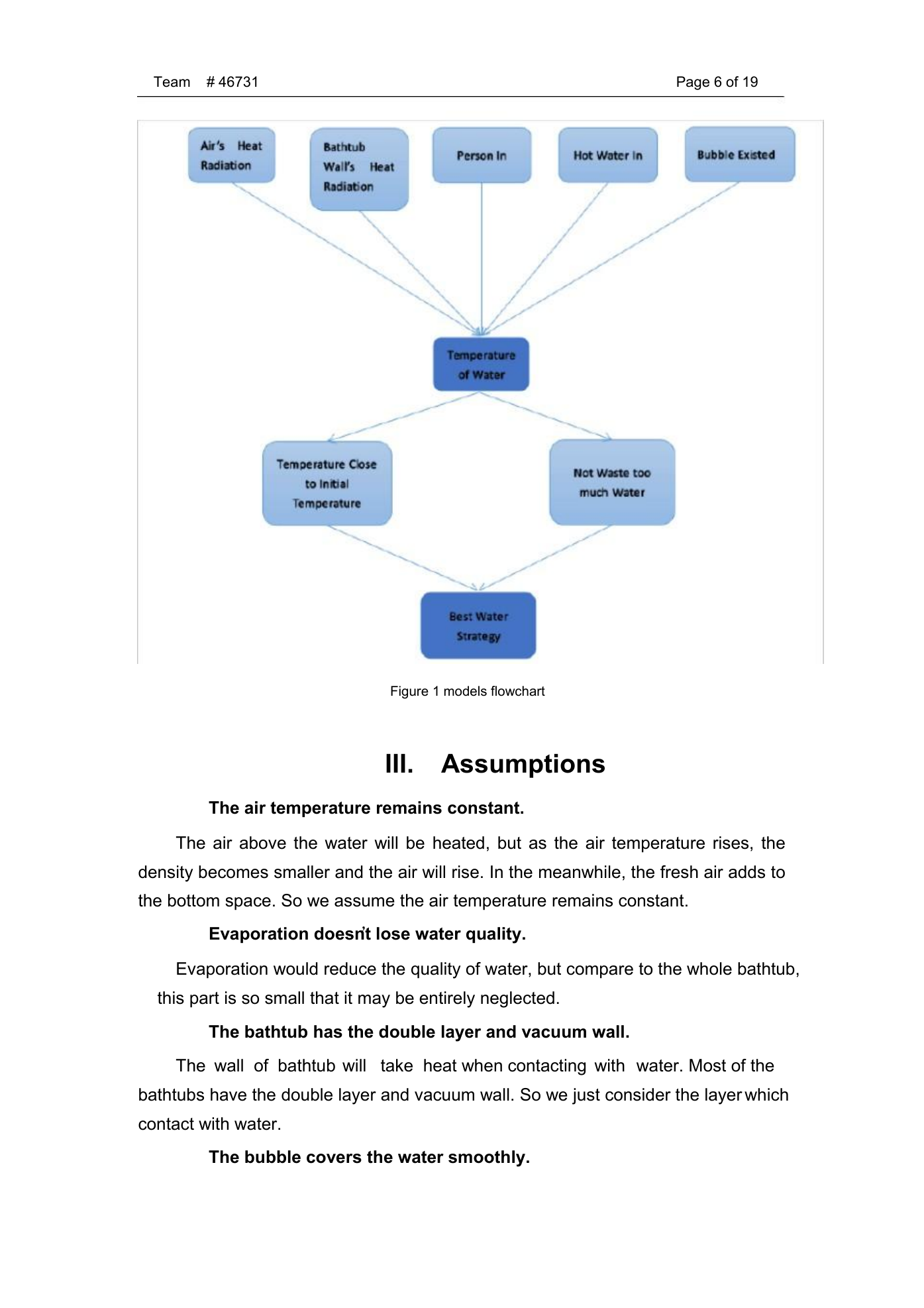
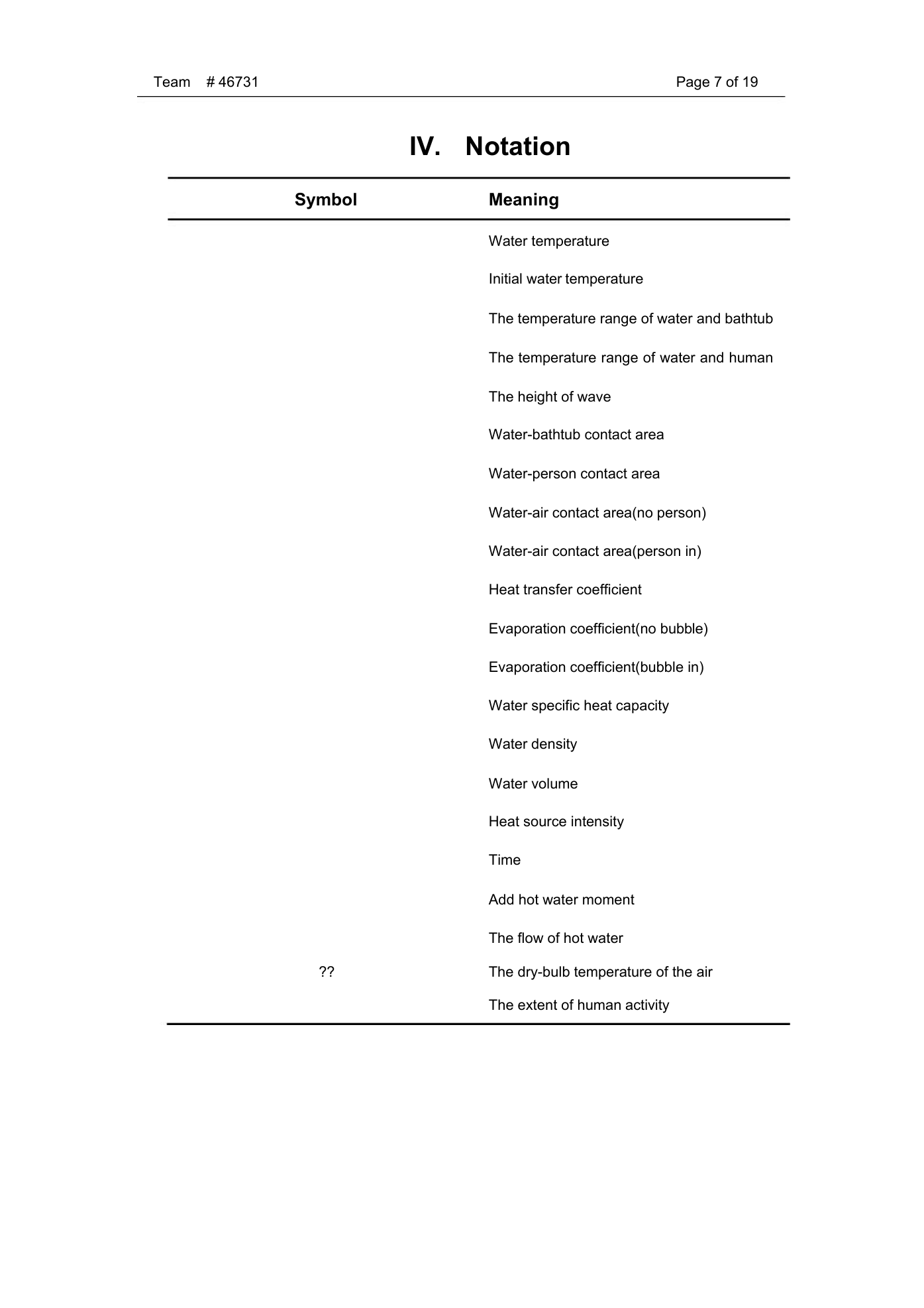
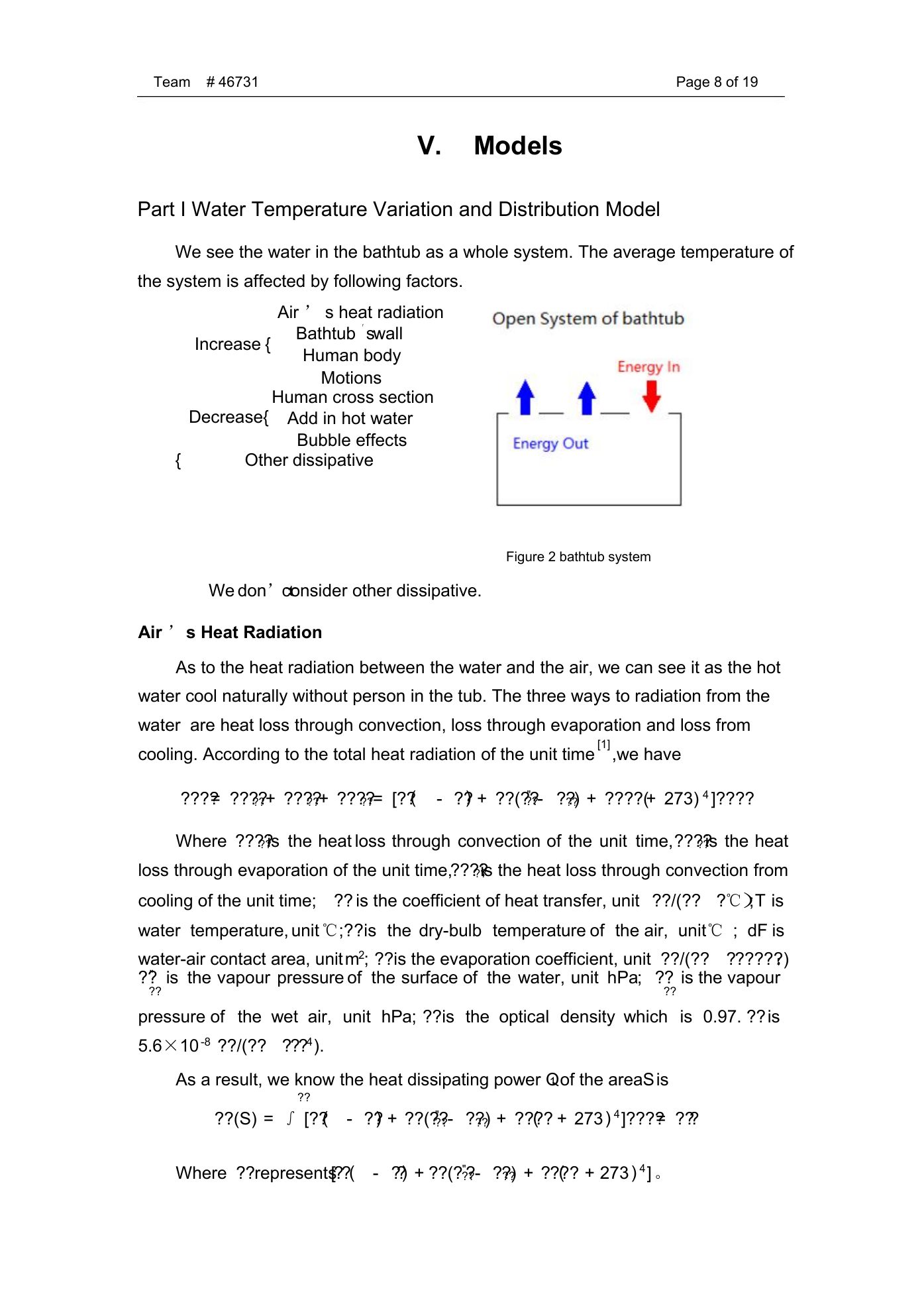








 2023年江西萍乡中考道德与法治真题及答案.doc
2023年江西萍乡中考道德与法治真题及答案.doc 2012年重庆南川中考生物真题及答案.doc
2012年重庆南川中考生物真题及答案.doc 2013年江西师范大学地理学综合及文艺理论基础考研真题.doc
2013年江西师范大学地理学综合及文艺理论基础考研真题.doc 2020年四川甘孜小升初语文真题及答案I卷.doc
2020年四川甘孜小升初语文真题及答案I卷.doc 2020年注册岩土工程师专业基础考试真题及答案.doc
2020年注册岩土工程师专业基础考试真题及答案.doc 2023-2024学年福建省厦门市九年级上学期数学月考试题及答案.doc
2023-2024学年福建省厦门市九年级上学期数学月考试题及答案.doc 2021-2022学年辽宁省沈阳市大东区九年级上学期语文期末试题及答案.doc
2021-2022学年辽宁省沈阳市大东区九年级上学期语文期末试题及答案.doc 2022-2023学年北京东城区初三第一学期物理期末试卷及答案.doc
2022-2023学年北京东城区初三第一学期物理期末试卷及答案.doc 2018上半年江西教师资格初中地理学科知识与教学能力真题及答案.doc
2018上半年江西教师资格初中地理学科知识与教学能力真题及答案.doc 2012年河北国家公务员申论考试真题及答案-省级.doc
2012年河北国家公务员申论考试真题及答案-省级.doc 2020-2021学年江苏省扬州市江都区邵樊片九年级上学期数学第一次质量检测试题及答案.doc
2020-2021学年江苏省扬州市江都区邵樊片九年级上学期数学第一次质量检测试题及答案.doc 2022下半年黑龙江教师资格证中学综合素质真题及答案.doc
2022下半年黑龙江教师资格证中学综合素质真题及答案.doc